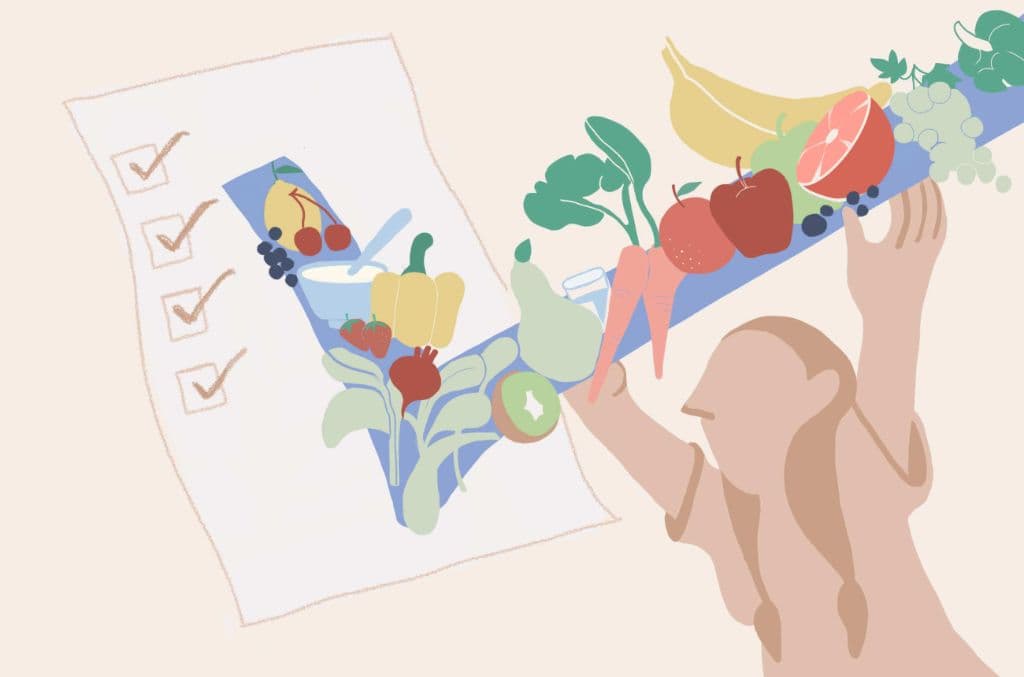Let us all agree that we have a love-hate relationship going on with food on a daily basis.
I mean, who doesn’t? Afterall, no food is off limits or comes with prominent labels of “good” or “bad”. Therefore, having a wholesome relationship with your food will not only benefit you in terms of health in the longer run, but will also make you aware of what suits your body and what doesn’t.
How to understand your relationship with food
It is extremely important for you to start changing the way you look at eating cues, your emotional vs physiological hunger, and maintaining a record of what you eat. It is imperative that the body gets the necessary nutrients at the right time. Essentially, if you fuel your body with healthy foods and goodness, it will thank you in return. The food you consume needs to be beneficial for your system. The more you understand what your body requires, the better you will feel after eating. Besides that, a once in a while indulgence is always acceptable.
Here are a few suggestions that you can incorporate in your daily routine:
You must respect your body’s natural hunger cues
Hunger is a biological process that is completely normal. Your body gives out alarms at appropriate intervals and it is only fair to respect them and acknowledge them. Trying to override hunger cues can lead to a decreased metabolism, strong cravings, overeating and not being able to trust your own body.
When you hear a growl in your stomach, it’s a hunger cue. Do NOT ignore it.
It is very important to recognize your body’s natural hunger cues so you can honour them. Some other signs of hunger might include dizziness or lightheadedness, irritability, lack of concentration, nausea, moodiness, emptiness in your stomach, an upset stomach, lack of energy, shakiness, and a preoccupation with food. Therefore, in order to avoid these issues, you must give your body the required amount of food and nutrition it demands.
Eat when you are hungry, and try stopping just before you are completely full.
While we spoke about how important it is to honour your hunger cues, it is also equally necessary to honour your fullness cues too. Eat when you begin to feel hungry and stop when you feel physically and psychologically satisfied.
At times when you are anxious around food, avoid making calorie count a priority.
Counting calories can lead to an unhealthy obsession with food that can result in disordered eating habits. Your entire energy might go into just focussing on the numbers when you should be eating what is right for you and your body. Give yourself permission to eat exactly what your body wants and that way you will build trust with your body.
Practice choosing ‘good carbs’ instead of ‘no carbs.’
Don’t think that avoiding carbs will improve your health because there are both healthy and unhealthy carbs for you to choose from. You can include healthy carbohydrates in your diet by selecting vegetables, fruits, legumes, and 100% whole grains like brown rice, quinoa, wheat, and oats.
Do not skip breakfast! It is only going to form hunger pangs late at night.
A lot of us tend to skip breakfast because of many reasons. However, what we don’t pay attention to is that skipping the first meal of the day can lead to eating much more later in the day or late at night in order to overcompensate your body’s natural needs. This can lead to a vicious cycle of overeating.
Most importantly, do not judge yourself for eating the foods you enjoy.
Keeping your body satisfied includes eating the tastes that you like and want is acceptable at times. If you’re eating healthy and listening to your body signals, it is okay to indulge occasionally.

Do you want to improve your relationship with your food?
For starters, the most basic thing to do is not judge yourself based on what you eat or how much you eat. If you do want to circle back to healthy eating, there are kinder ways to do so.
Heard of Intuitive Eating?
This is the first step to eating without judgement while also constantly keeping a track of our hunger cues. One needs to feel happy about the kind of food they eat. Intuitive eating means giving yourself genuine and unconditional permission to eat, however that consent isn't eating while being reckless. It's in fact, just the opposite. Instead, it means giving yourself unconditional permission to eat, but with curiosity and non-judgment. Precisely, intuitive eating explains why giving unlimited consent to eat permits us to learn how to make peace with the foods we intake, eliminate the myth of "fear food" and learn to feel safe around ALL kinds of food.
A lot of us tend to maintain a diet chart, journal or diary that is strict and challenging. This pushes us to eat when we are hungry and stop just when we are almost full. This way, if you are craving biryani, you won’t end up eating cauliflower rice and still crave the biryani and binge on it after 2 weeks of restriction.
Avoiding Junk-Guilt
This is something which we all do, time and again. When you feel overwhelmed or upset, and find yourself reaching out for yet another chocolate bar or a bag of chips, you convince yourself that that is the only way to cope. Instead, try tricking your mind into doing things that will divert you, like, talking to a friend, finishing a pending chore, working on that module that you’ve been excited about, etc.
Identify the ‘why’ behind comfort eating and habituate yourself into doing the above-mentioned activities.
Discover and Accept
Last but not the least, tell yourself that sometimes it is OK to enjoy eating even if you are not hungry. The more you discover your needs, the better you’ll get at improving your relationship with food. You are only human and it is okay to have a carefree binge sometimes.
However, if that is your only way of coping, then you need to check in with yourself or maybe take your dietician’s opinion. Hence, by applying these few practices in your daily routine, you will not only inculcate healthy eating habits but will also learn and unlearn so many things that are good or bad for your body.
Hence, the bottomline is that in the process of acknowledging and rebuilding your relationship with food, you have to understand the key points mentioned above and habituate yourself into practicing them on a regular basis. However, consult a professional if you face any kind of issues while doing so as they could turn into serious eating disorders in the future.
We at Proactive aim at creating a world-class medical experience for Indian women and adopt gold standards in every healthcare initiative whether it’s a teleconsultation or a webinar. What sets us apart from the rest is our liberal, convenient, and holistic approach to healthcare.
Disclaimer: This information is educational and should not be construed as medical advice. Please consult your doctor before making any dietary changes or adding supplements.
Proactive For Her is a digital clinic for women, offering accessible, personalised, and confidential healthcare solutions. We offer out-patient care, diagnostic services and programs for various health concerns of Indian women, across their lifetime - from puberty to pregnancy to menopause.

